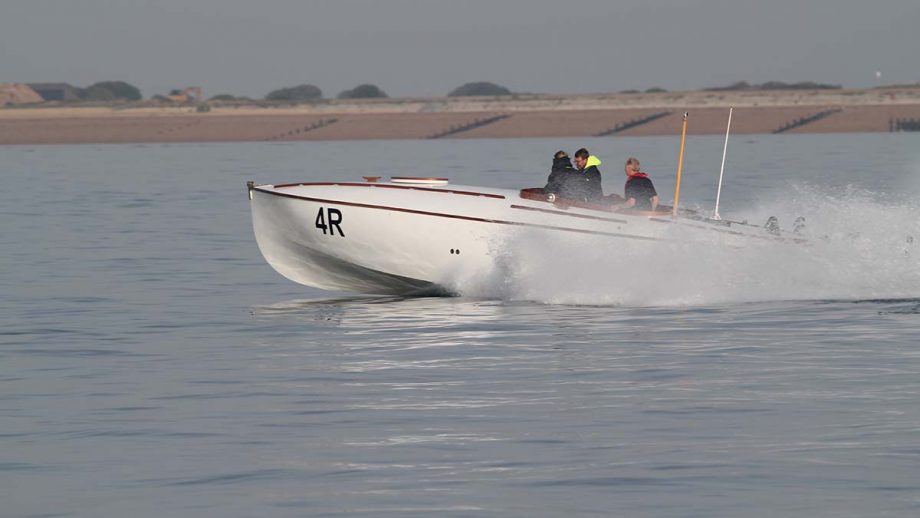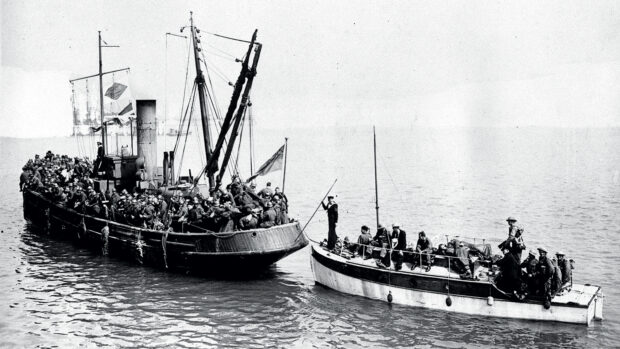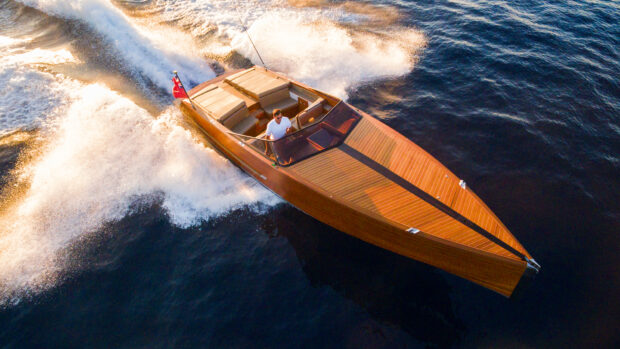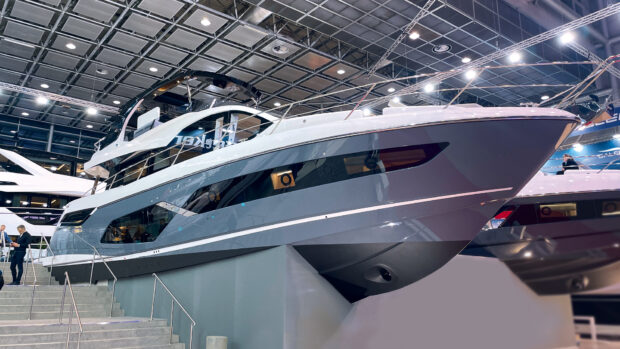The meticulously built replica is the result of years of hard work from a team of 35 volunteers at the Portsmouth Naval Base Property Trust…
A glorious chapter of British naval history was revived in Portsmouth today (September 8) as CMB4R took to the water at her official launch ceremony.
Built by the Portsmouth Naval Base Property Trust, CMB4R is a replica of the original Coastal Motor Boat 4 (CMB4), which saw plenty of action during World World One, including the sinking of the Russian warship Oleg in 1919.
“This replica is the brainchild of Rodney Agar, nephew of the original CMB4’s most famed commander [and Victoria Cross recipient], Lieutenant Augustus Agar,” explained Portsmouth Naval Base Property Trust CEO Hannah Prowse.
 Watch the video
Watch the video“Thanks to funding secured from the Chancellor’s LIBOR fund in 2016, we were able to make Rodney’s ambitious dream a reality despite traditional boat building of this nature being now no longer widely practiced or documented.
“The influence of the CMB on naval architecture post-WWI is of such significance, it felt only right to recreate this revolutionary vessel so visitors to Portsmouth Historic Dockyard could appreciate and understand its impact.
Article continues below…

Royal Navy landing craft boat test: Driving a humble hero of the Falklands War

MGB 81: This restored World War II gunboat is the Spitfire of the seas
When German E-Boats began to run amok in English waters early in the Second World War, the Navy responded with
“We must pay tribute to our wonderful team of volunteers led over the years by David Griffiths, Bob Forsyth and Diggory Rose, our partners Landau, as well as the National Maritime Museum, who provided the crucial plans of the original Coastal Motor Boat from 1915, without which they wouldn’t have been able to build such a high quality replica,” she added.
“A great amount of thanks also to the Imperial War Museum, who loaned us the original CMB4 currently on display in Boathouse 4, which was integral to helping the team understand the boat’s engineering.”
CMB4 design
CMB4 was designed in 1915 by the Thorneycroft company, with owner Sir John Isaac Thornycroft and his children, John Edward, Tom and Blanche all contributing.

Blanche Thornycroft holding a recording disc used to test model boats at Steyne House on the Isle of Wight, the Thornycroft family home
Blanche’s contributions have recently come into the spotlight, and she holds a rare place in the history of naval architecture, being one of the first three women to be admitted to the Royal Institution of Naval Architects in 1919.
“It’s only in the last four or five years that historians have become more interested in Blanche Thornycroft and her influence on naval engineering,” said her great nephew Hamo Thornycroft. “I think her impact on other women working or aspiring to work in boat engineering can be considerable.”
CMB4 construction
Measuring 40ft in length and capable of a top speed of 40 knots (remarkably fast by early 20th Century standards), CMB4 was a significant weapon in the Royal Navy’s floating arsenal, and they knew it – conducting sea trials under the cover of night so as to keep her development a secret from enemy spies.
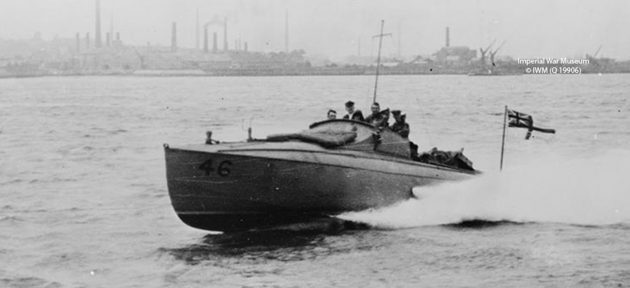
CMB4 in action in the early 20th century (image property of the Imperial War Museum)
Equipped with torpedoes that could (and indeed did) sink a 7,000 tonne cruiser, CMB4 was as deadly as it was fast, but that speed was just as important for evading fire, since it was completely unarmoured.
Building a replica of the all-wooden construction CMB4 was a significant challenge, even for the highly experienced shipwrights at the Portsmouth Naval Base Property Trust.
“The team have predominately used traditional boat building methods on CMB4R,” reveals team lead David Griffiths.
“War boats from this era were not built to last – they had pretty short life expectancy, as you can imagine. CMB4R is meant to look the part but is finished using 21st century technology to better preserve it for future generations.”

Augustus Agar received the Victoria Cross for his brave deeds at the helm of CMB4


Blanche and Tom Thornycroft sitting on top of an original CMB at Platt’s Eyot in London

CMB4 boat test at Steyne House

CMB4R was built by volunteers in Portsmouth Historic Dockyard



(From right to left) Team lead David Griffiths and volunteers Mike Scott, Hamo Thornycroft, Tim Deacon, Mike Finch and Steve Dawson with CMB4R


CMB4R on sea trials




